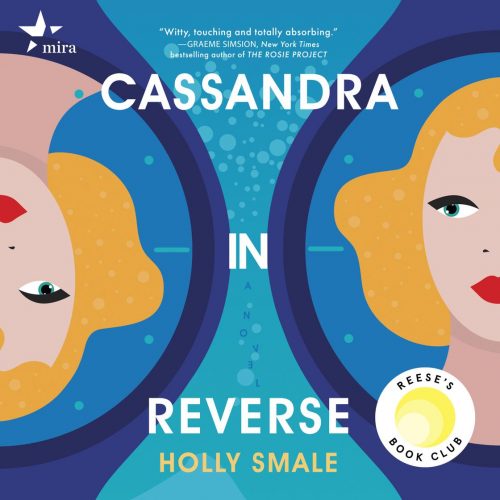 Cassandra in Reverse by Holly Smale
Cassandra in Reverse by Holly Smale Narrator: Kristin Atherton
Format: audiobook, eARC
Source: supplied by publisher via Edelweiss, supplied by publisher via Libro.fm
Formats available: hardcover, large print, ebook, audiobook
Genres: Chick Lit, time travel romance, women's fiction
Pages: 368
Length: 13 hours and 15 minutes
Published by Harlequin Audio, Harlequin MIRA on June 6, 2023
Purchasing Info: Author's Website, Publisher's Website, Amazon, Barnes & Noble, Kobo, Bookshop.org, Better World Books
Goodreads
If you had the power to change the past…where would you start?
Cassandra Penelope Dankworth is a creature of habit. She likes what she likes (museums, jumpsuits, her boyfriend, Will) and strongly dislikes what she doesn't (mess, change, her boss drinking out of her mug). Her life runs in a pleasing, predictable order…until now.• She's just been dumped.• She's just been fired.• Her local café has run out of banana muffins.
Then, something truly unexpected happens: Cassie discovers she can go back and change the past. One small rewind at a time, Cassie attempts to fix the life she accidentally obliterated, but soon she'll discover she's trying to fix all the wrong things.
My Review:
The problem with wanting to change things is that things change – including things we had no intention of changing. There’s that thing about the butterfly and its unintended wing flap to consider.
But when Cassandra Dankworth discovers, on her second repeat of the second worst day in her life, that she has the power to change her past, she quickly discovers that for every single thing she attempts to fix, there’s a journey down the road not originally taken that might be even worse than the one she originally took.
As difficult as that is for her to imagine. Because it really, truly was a terrible, horrible, no-good, very bad day. Tinkering with it isn’t going to make things any better. Tinkering with the worst day of her life, the day her parents were both killed in a car accident ten years ago, seems to be out of her reach.
The one thing she can do, the event that the universe seems to be pointing her towards with increasingly sharp, poking fingers, is the day that she met her boyfriend, Will. The boyfriend who began her terrible, horrible, etc. day by breaking up with her.
She can’t save her parents, but she can save her relationship. If she can use her seemingly endless ability to tweak time to fix things. And herself. All she has to do is learn the lessons that the universe seems determined to teach her.
Even if they are not the lessons she wants them to be.
Escape Rating C: I ended up with a whole lot of mixed feelings about Cassandra in Reverse. I flipped back and forth between the audiobook and the text, trying to find a way to make myself comfortable in the story.
Which was probably a mistake on multiple levels, because the way the story begins makes it abundantly clear that Cassandra Dankworth is just not a comfortable person to be with. In audio the listener is bombarded with Cassandra’s rapidly firing mental processes – and it’s impossible not to understand why the people around her find her so “difficult”.
Howsomever, because we’re in her neurodivergent head and her first-person perspective, we are also able to empathize with Cassandra in a way that the people around her most definitely do not.
So we get both sides with both barrels – which does not make either of them a comfortable read.
Which means that it is not a surprise that when Cassandra discovers her limited power to time travel, the thing she truly wants to change – and by that I mean “fix” – is herself. Considering all of the completely negative and utterly damning messages that she has received over her life, and how much she has internalized those messages, she’s convinced that everything that happens to her is her fault because she’s broken. She ends up rewriting and resetting her encounters with pretty much everyone in her life, over and over, in order to learn proper behavior so she can fix herself and be happy like everyone around her.
The hard lesson in this story is that she’s not going to ever be happy like everyone around her because she isn’t like everyone around her. The lesson she needs to absorb is about accepting herself, finding other people who accept her as she is and not as society expects her to be, and make a life that works for her.
It’s a very hard lesson, and one that most of us struggle with for all of our lives. And at the end of Cassandra in Reverse I’m not even sure that Cassandra has figured out that that’s the lesson she was supposed to learn. Although it is possible to interpret the story that she did, and that her journey involves resetting everyone else’s as she passes by.
So I’m torn by this one. It didn’t work well for me, and found the audio to be a particularly rough ride because the drumbeat of how much Cassandra does not fit into the world around her is so very loud and harsh. I felt for her too much to want to experience the way the world treated her from so intimate a perspective.
Your reading mileage may vary.

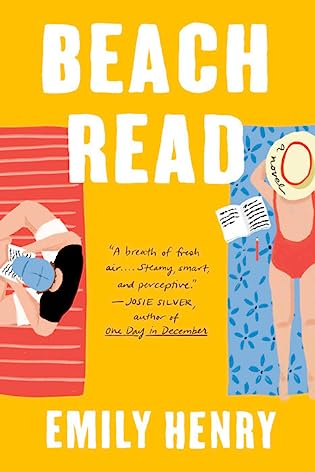 Beach Read by
Beach Read by 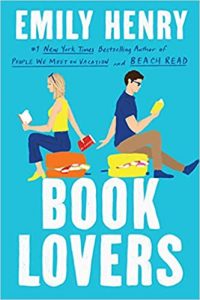 Beach Read has been in the virtually towering TBR pile ever since I read – and fell in love with –
Beach Read has been in the virtually towering TBR pile ever since I read – and fell in love with – 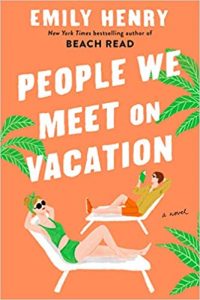 While it was a given from the outset that January and Gus were going to reach at least the kind of happy for now that both the character January AND the author usually write, what made this book interesting and different was the books that January and Gus each produced on their way to it, and how those books managed to be both a departure from their usual styles while still expressing the core parts of their personalities and their reasons for becoming writers in the first place.
While it was a given from the outset that January and Gus were going to reach at least the kind of happy for now that both the character January AND the author usually write, what made this book interesting and different was the books that January and Gus each produced on their way to it, and how those books managed to be both a departure from their usual styles while still expressing the core parts of their personalities and their reasons for becoming writers in the first place.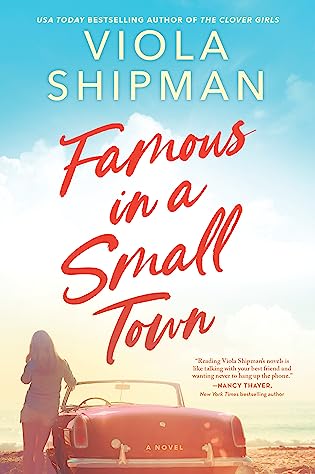 Famous in a Small Town by
Famous in a Small Town by 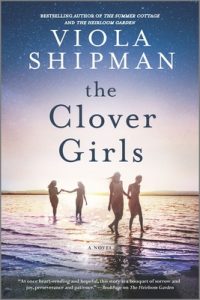 I picked up this book because I loved the beautifully “sad fluff” of the author’s earlier novel,
I picked up this book because I loved the beautifully “sad fluff” of the author’s earlier novel, 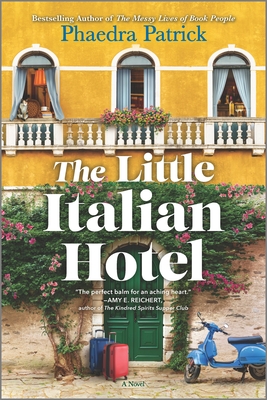 The Little Italian Hotel by
The Little Italian Hotel by 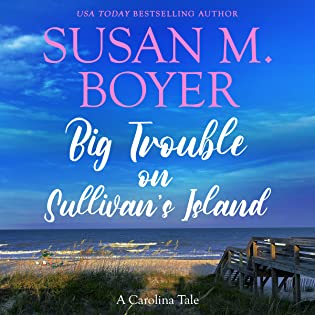 Big Trouble on Sullivan's Island (Carolina Tales Book 1) by
Big Trouble on Sullivan's Island (Carolina Tales Book 1) by 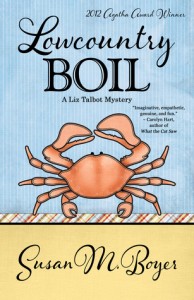 Escape Rating A-: I picked this up because I love the author’s
Escape Rating A-: I picked this up because I love the author’s 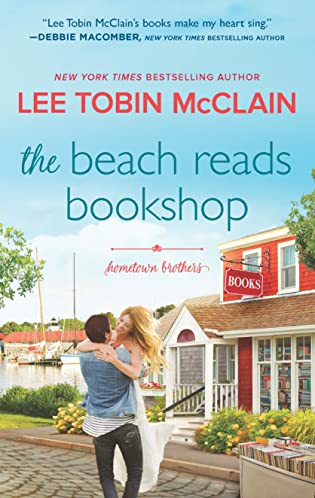 The Beach Reads Bookshop by
The Beach Reads Bookshop by 
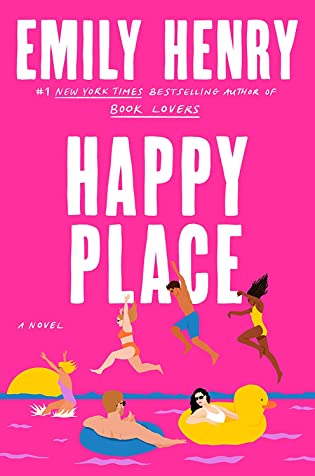 Happy Place by
Happy Place by 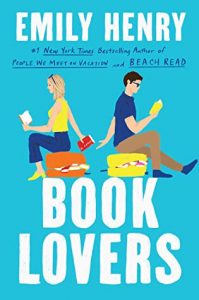 Escape Rating B+: I went into Happy Place hoping for another
Escape Rating B+: I went into Happy Place hoping for another 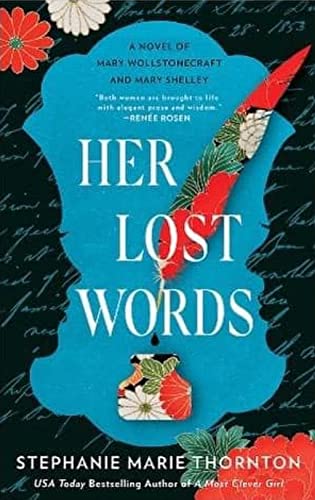 Her Lost Words: A Novel of Mary Wollstonecraft and Mary Shelley by
Her Lost Words: A Novel of Mary Wollstonecraft and Mary Shelley by  But the tides of history turn, and for more than a century after Mary Shelley’s death it was HER great work that captured the limelight – and much of the popular imagination – while her mother’s achievements were covered in the shadows cast by her daughter’s monster, the doctor who made him and the literary genre they started.
But the tides of history turn, and for more than a century after Mary Shelley’s death it was HER great work that captured the limelight – and much of the popular imagination – while her mother’s achievements were covered in the shadows cast by her daughter’s monster, the doctor who made him and the literary genre they started.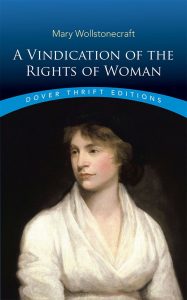 Escape Rating B: Someone needs to do a literary survey of just how many fictional and even non-fictional biographies of famous women in history begin with a dramatic scene of parental or spousal abuse. Not that I do not believe it’s true in the case of the older Mary, more that it should be telling in a profound way that it happened so damn frequently but somehow that message never seems to penetrate the male psyche. Which is a part of what made
Escape Rating B: Someone needs to do a literary survey of just how many fictional and even non-fictional biographies of famous women in history begin with a dramatic scene of parental or spousal abuse. Not that I do not believe it’s true in the case of the older Mary, more that it should be telling in a profound way that it happened so damn frequently but somehow that message never seems to penetrate the male psyche. Which is a part of what made 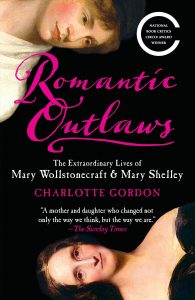 I wanted to be all in on this one and I just wasn’t. I’m still interested in Wollstonecraft and Shelley, and will probably refer myself to
I wanted to be all in on this one and I just wasn’t. I’m still interested in Wollstonecraft and Shelley, and will probably refer myself to 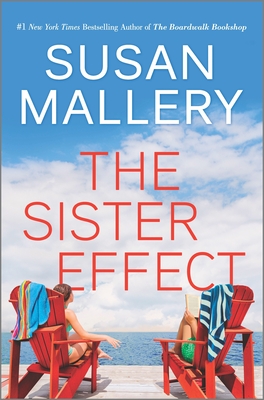 The Sister Effect by
The Sister Effect by 
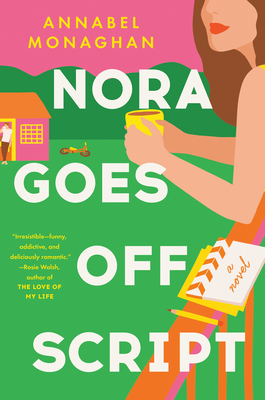 Nora Goes Off Script by
Nora Goes Off Script by 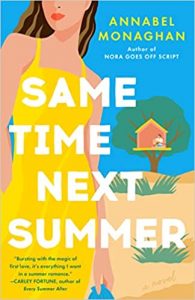 That all of Nora’s justified angst does lead to both another big money script sold to Hollywood AND to an HEA without her having to compromise a thing – because she shouldn’t – was a surprise and a delight. The ending fed the fantasy in a way that made this reader end the book with a big smile on my face – although probably not as big a smile as the one on Nora’s daughter Bernadette’s face.
That all of Nora’s justified angst does lead to both another big money script sold to Hollywood AND to an HEA without her having to compromise a thing – because she shouldn’t – was a surprise and a delight. The ending fed the fantasy in a way that made this reader end the book with a big smile on my face – although probably not as big a smile as the one on Nora’s daughter Bernadette’s face.